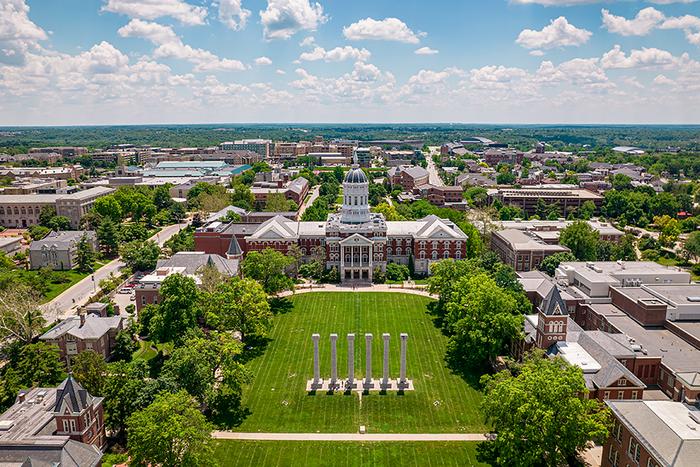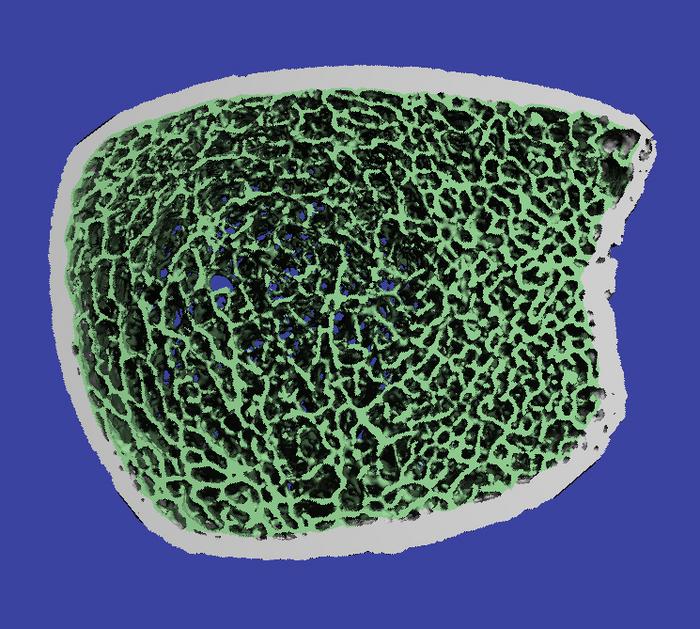Major strides forward: MizzouForward makes new $5 million investment in student success initiatives
In 2021, the University of Missouri launched MizzouForward, the boldest investment in the university’s 185-year history. The goals of the 10-year, $1.5 billion initiative include: Credit: University of Missouri In 2021, the University of Missouri launched MizzouForward, the boldest investment in the university’s 185-year history. The goals of the 10-year, $1.5 billion initiative include: Enriching […]

In 2021, the University of Missouri launched MizzouForward, the boldest investment in the university’s 185-year history. The goals of the 10-year, $1.5 billion initiative include:

Credit: University of Missouri
In 2021, the University of Missouri launched MizzouForward, the boldest investment in the university’s 185-year history. The goals of the 10-year, $1.5 billion initiative include:
- Enriching students’ educational experiences
- Hiring 150 new faculty to Mizzou
- Boosting research productivity
- Strengthening the state’s economy
- Upgrading infrastructure on Mizzou’s campus
One of the earliest investments in MizzouForward involved dedicating more than $4 million to fund 53 student success initiatives, including infrastructure upgrades to classrooms, research laboratories and software systems on campus that enhance student learning and provide more hands-on experiences. Now, Mizzou is doubling down on that effort by investing an additional $5 million to support additional student success initiatives.
“MizzouForward investments in student success, faculty excellence and infrastructure upgrades are transforming our entire campus, providing world-class educational experiences and solving grand challenges through leading-edge research,” said Mun Choi, president of the University of Missouri. “We are proud of the momentum built with MizzouForward, and we’re excited to see it continue.”
The additional $5 million investment supports 75 new student success projects including:
- A diagnostic medical ultrasound laboratory — A high-fidelity obstetric ultrasound simulator that will enhance student learning and preparation for the workforce.
- Flight simulator training equipment — Cadets in Mizzou’s Air Force ROTC program who are seeking a career in aviation will gain valuable and realistic flight training.
- Research Matching for Student Success application — A user-friendly application that will match students seeking research opportunities with faculty wanting to mentor and/or hire students to help work on their research projects.
COMPLETE LIST OF FUNDED PROJECTS
“We are investing in our students and enhancing their experiences on campus,” said John Middleton, associate vice president for academic affairs and chief of staff at the University of Missouri. “We appreciate our faculty and staff for submitting proposals that add value to the already impressive hands-on learning opportunities Mizzou offers — training students to be leaders and help them launch their careers.”
Perhaps the greatest measure of student accomplishment is graduating and finding a successful career outcome afterward. In 2023, Mizzou students broke the university’s all-time retention and graduation rate records, and, according to a new career outcomes survey, more than 95% of recent Mizzou graduates found employment, began graduate studies or entered volunteer service within six months of graduation. These successful outcomes are part of the reason that Mizzou was ranked by U.S. News & World Report as the 7th Best Value among flagship universities. Time Magazine also ranked Mizzou 13th Best among all flagships for educating future leaders.
Investing in the best
The University of Missouri is one of the world’s leading research institutions. As a proud member of the Association of American Universities and a land-grant university, Mizzou intentionally conducts research that is strategically aimed at improving the lives of Missourians and addressing global challenges. Less than three years into MizzouForward’s transformational efforts, the initiative has resulted in the hiring of nearly 70 new MizzouForward faculty members who work in nearly every academic unit on campus — nearing the halfway mark of the original 150 hiring goal.
“Thanks to so many dedicated partners across campus, the MizzouForward recruitment initiative is accomplishing exactly what we set out to do,” said Matthew Martens, interim provost and executive vice chancellor for academic affairs. “We are bringing world-class researchers to campus to join the strong faculty who are already here. Together, we are ensuring the research enterprise continues to align with national and global challenges and improve our key indicators for rankings and the overall prestige of Mizzou.”
Additionally, many MizzouForward faculty members bring existing federally funded projects with them. Their work is funded by agencies such as the National Institutes of Health, the National Science Foundation, the Department of Energy, the Department of Defense and the Institute of Education Sciences, among others. Currently, incoming MizzouForward faculty are active participants in more than 100 external grant awards totaling more than $102 million with nearly 180 pending proposals that could bring more than $200 million in additional funding to Mizzou. This research productivity will aid in continued growth of research expenditures — Mizzou set a record $462 million in fiscal year 2023, capping 10 consecutive years of growth.
Through MizzouForward, the university has invested in renovations of research facilities, new staff for proposal development, core facilities and research instruments. In addition, the university has plans for a new Center for Energy Innovation that will enable engineers, scientists and policy experts to explore new frontiers.
Additional MizzouForward investments to support faculty and staff excellence, student success and research infrastructure include:
- Support for faculty and staff merit increases.
- Support for faculty and staff retention.
- $750,000 in training grants to support undergraduate research fellowships for students.
- The hiring of a new director of advising initiatives, 17 new academic advisors and professional development opportunities for advising staff.
- The implementation of Stellic Advising software to improve degree planning and progress tracking for students and advisors, and academic resource allocation and planning for administrators.
- Access to next-generation storage and computing technology Hellbender, a new high-power computing environment to support the university’s research data ecosystem.
What's Your Reaction?

































